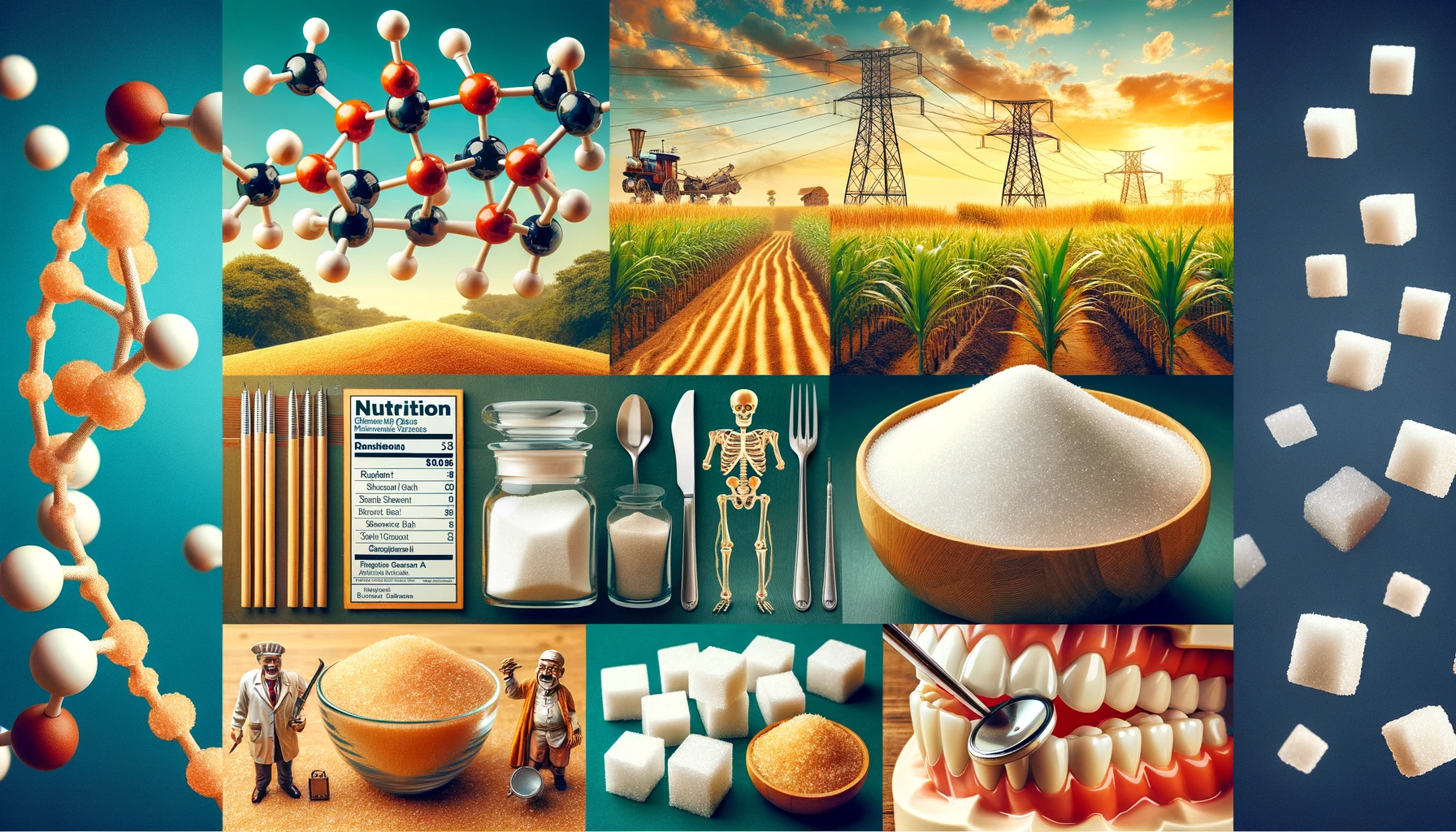In the world of athletics, optimal performance is a top priority. Athletes invest countless hours in training, honing their skills, and fine-tuning their bodies to achieve peak results. A crucial aspect of this process is nutrition, and more specifically, the role that sugar plays in fueling athletic performance. In this comprehensive guide, we will explore the relationship between sugar and athletic performance, uncovering the key ingredients needed to ensure athletes perform at their best.
Understanding the Role of Sugar in Athletic Performance
1. Sugar as a Source of Energy
Sugar, in its various forms, serves as a primary source of energy for the human body. During exercise, our muscles require a steady supply of glucose (sugar) to function optimally. This is particularly true for high-intensity activities such as sprinting, weightlifting, and interval training. Sugar provides quick energy that can help athletes push through strenuous workouts.
2. Blood Sugar Regulation
Effective athletic performance relies on maintaining stable blood sugar levels. When an athlete’s blood sugar levels are too low, they may experience fatigue, dizziness, and a decrease in performance. Conversely, excessive sugar consumption can lead to spikes and crashes in blood sugar levels. Striking the right balance is essential.
Types of Sugar: Natural vs. Added
1. Natural Sugars
Natural sugars are those found in whole foods like fruits, vegetables, and dairy products. These sugars come packaged with essential nutrients, fiber, and antioxidants. Athletes can benefit from consuming natural sugars as they provide a sustained source of energy and support overall health.
2. Added Sugars
Added sugars, on the other hand, are sugars incorporated into processed foods and beverages. These sugars lack the nutritional benefits of natural sugars and can lead to weight gain and other health issues when consumed in excess. Athletes should limit their intake of added sugars, especially those found in sugary drinks and snacks.
Balancing Sugar Intake for Athletic Performance
1. Pre-Workout Nutrition
Prior to a workout, athletes can benefit from consuming a combination of natural sugars and complex carbohydrates. This provides a steady release of energy to fuel the exercise session. Examples include a banana with almond butter or oatmeal with berries.
2. Intra-Workout Fueling
For extended workouts or endurance activities, athletes may need to replenish their energy stores. Sports drinks or energy gels containing a controlled amount of sugar can be useful in maintaining energy levels during prolonged exercise.
3. Post-Workout Recovery
After an intense workout, the body requires both protein and carbohydrates to aid in recovery. A combination of natural sugars from fruits and carbohydrates from whole grains can help replenish glycogen stores and support muscle repair.
The Importance of Timing
1. Pre-Exercise Timing
Consuming sugar-rich foods or beverages about 30 minutes before exercise can help provide an immediate energy boost and prevent early fatigue during a workout.
2. During Exercise Timing
For activities lasting longer than an hour, consider consuming small amounts of sugar-containing items every 15-30 minutes to maintain energy levels without experiencing a sugar crash.
3. Post-Exercise Timing
In the post-workout window (within two hours after exercise), aim to consume a balanced meal that includes both carbohydrates and protein to aid in recovery and muscle repair.
Choosing the Right Sugars
1. Complex Carbohydrates
Complex carbohydrates, found in foods like whole grains, brown rice, and sweet potatoes, are an excellent choice for athletes. They release energy slowly and provide sustained fuel for workouts.
2. Natural Sugars from Fruits
Fruits such as bananas, oranges, and berries are packed with vitamins, minerals, and natural sugars. They make for a healthy, energy-boosting snack or addition to pre-workout meals.
3. Limited Use of Added Sugars
Athletes should be cautious about consuming added sugars. When needed, opt for natural sweeteners like honey or maple syrup as alternatives to refined sugar.
Conclusion: Fueling Athletic Performance with Sugar
In conclusion, sugar plays a vital role in fueling athletic performance when used strategically. Athletes should focus on incorporating natural sugars and complex carbohydrates into their diets while minimizing the consumption of added sugars. Timing is key, with pre, during, and post-workout nutrition playing crucial roles in optimizing energy levels and recovery.
By understanding the role of sugar in athletic performance and making informed dietary choices, athletes can harness the power of this essential nutrient to excel in their respective sports and achieve their performance goals. Remember, balance and moderation are key, as is consulting with a qualified nutritionist or dietitian to create a personalized nutrition plan tailored to individual needs and goals.
